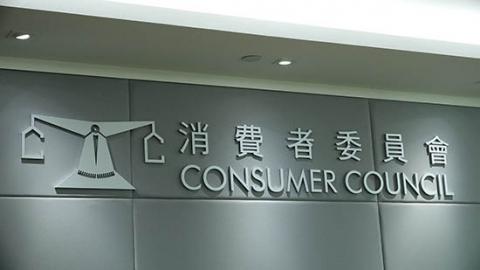- The Consumer Council (CC) is pleased to provide views on the public consultation on the Producer Responsibility Scheme on Plastic Beverage Containers (PPRS).
- CC supports introducing a mandatory producer responsibility scheme to strengthen the effectiveness in recycling of plastic beverage containers in Hong Kong. Currently, the collection and recovery of plastic beverage containers from various collection facilities in Hong Kong is far from satisfactory. According to “Monitoring of Solid Waste in Hong Kong 2019”, the recovery rate of plastics recyclables in Hong Kong is 8%, far lower than that of paper 35% and metal 91%. As compared to the OECD information published in 2018, the approximate global plastics recycling rate is 18%.
- Most of the plastic beverage bottles are disposed of in the landfills. Hence, a dedicated system to handle and collect these bottles separately from other waste plastics would strengthen the overall effectiveness in their collection and recycling. Experience of other places revealed that the system is commonly used with the provision of a financial incentive to encourage and facilitate the public to return used beverage bottles, and ultimately to enhance the recovery, efficiency and quality in recycling plastic beverage containers.
- The Council agreed that a certain incentive is required to motivate the consumers to support the recycling of plastic beverage containers but the proposed financial incentive of 10 cents rebate may not be adequate to alter consumers’ behaviour to return the used plastic beverage bottles to the collection network. Given the financial incentive has to balance key factors such as perception and affordability of consumers, and the implications to the traders, the Government may have to test the receptiveness of different incentive points, and the Council believes that the plastic bag charge may be a good reference point to start.
- The barcodes on the containers can be useful in identifying registered importers or manufacturers for administration of levy charging to fund the recycling scheme and prevent fraud. However, in certain education materials for plastic bottles, consumers are requested to clean the bottles, remove the caps and plastic labels with barcodes on beverage bottles. If the barcodes are essential in the new recycling scheme, consumers should be educated again to ensure they follow the correct recycling steps. In addition, it is expected that plastic beverage bottles without appropriate plastic labels or barcodes can still be collected whereas the sole difference is no rebate only.
- According to the Council’s “Sustainable Consumption for Better Future” study report from 2016, ease is of essence for consumers to take action. To boost the collection efficiency, retailers selling beverages in plastic bottles are convenient places for collection and they have to exercise their responsibilities by providing take-back and rebate redemption services. Obviously retail stores with more available space or manpower would be more ready to administer the collection processes, either manually or automatically through reverse vending machines. To ensure a successful implementation in collecting plastic beverage containers, the retailers of concern must develop a proper operational workflow with adequate staff training to manage the whole recycling system diligently.
- In addition, as beverages are consumed on-the-go, the collection network has to be conveniently located and widely accessible, to facilitate return of the bottles. The preferred locations would be various hot spots with easy foot access such as public transport facilities (bus terminals or MTR/train stations), public facilities such as sports centres and public playgrounds, shopping centres and residential housing estates. The more collection points developed, the easier it will be for consumers to recycle the beverage containers.
- To enable proper functioning of the circular economy, collected bottles should be delivered to the designated recycling facilities and turned into useful materials effectively. Statistical data reporting the recycling performance should be published regularly in order to reinforce and sustain the public efforts positively. This is of prime importance as the public had lost confidence to support recycling due to bad publicity reports on the collected plastic bottles ending up in the municipal waste landfills.
- The Council is of the view that more proactive measures such as charges or restrictions can be taken by the Government and various stakeholders to reduce the use of plastics such as in fast-food sectors, toiletries or plastic packaging for fresh vegetables and fruits in supermarket chains. Other plastic reduction measures should be explored further to reduce the use of plastics from the source and to educate the public to minimise waste on plastic materials.
- To support the annual theme of World Consumer Rights Day, “Tackling Plastic Pollution”, the Council joined hands with 8 other consumer associations in conducting a research study on the packaging of different daily consumables and published a report called “The Consumer Lens on Packaging 2021”. The Council also published on its March Edition of CHOICE magazine to educate consumers on the seriousness of the plastic pollution problem in Hong Kong and to provide educational information on sustainable consumption such as eco-friendly product designs. The Council will continue to drive various educational, research and advocacy efforts related to sustainable consumption and raising public awareness to the plastic waste problem.
May 2021
Consumer Council












